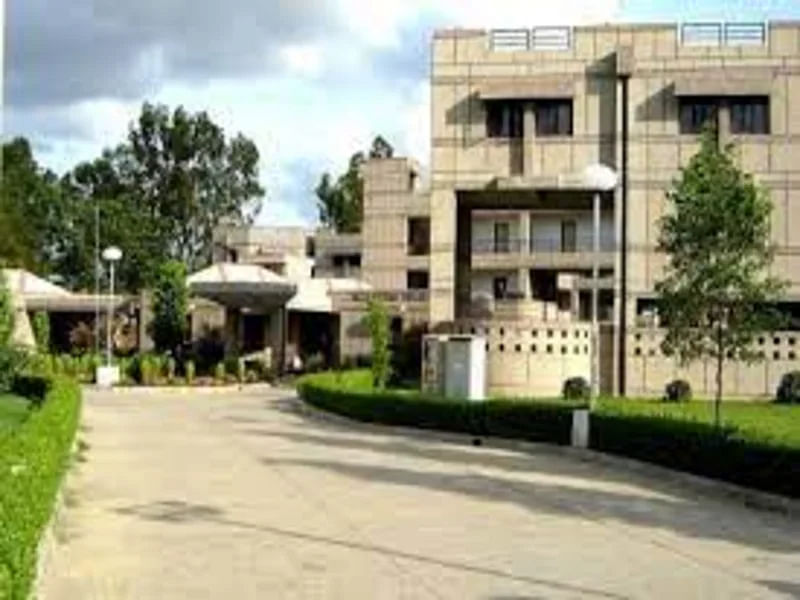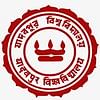BSc Physics Syllabus and Subjects

BSc Physics syllabus is based on the foundational areas of physics and natural science including classical mechanics, waves and optics, electromagnetism, thermal physics, quantum mechanics, nuclear physics, digital systems and applications, kinetic theory, and thermodynamics. In addition to these core BSc Physics subjects, students may also be required to take electives in their third year covering topics such as biophysics, materials science, and environmental physics.
The BSc Physics course offers an industry-oriented syllabus and equips students with the necessary knowledge and expertise to work in research centers, educational institutes, and other sectors based on similar scientific studies. Hence, the job scope is vast in terms of providing potential career prospects to students.
Check Detailed Year Wise Syllabus:
Table of Contents
Semester Wise BSc Physics Syllabus
The BSc Physics syllabus consists of a systematic and multidisciplinary curriculum that involves both theoretical and practical study of physics. B.Sc physics syllabus for each semester contains theory, lab, and practical examinations. The following is a tabulated breakdown of the general BSc Physics syllabus semester-wise:
First Year BSc Physics Syllabus
BSc Physics syllabus 1st year is diverse and includes a wide range of scientific studies on optics, particle & nuclear physics, quantum mechanics, electromagnetism, etc. The table below represents the first-year BSc Physics subjects:
|
Semester I |
Semester II |
|
Properties of Matter and Acoustics |
Mechanics-II |
|
Allied Mathematics – I |
Allied Mathematics – II |
|
Mechanics-I |
Environmental Studies |
|
Electricity and Magnetism |
Optics |
|
- |
Thermal Physics and Oscillations |
|
- |
Electro-Magnetic Induction and Electronic Devices |
Practical topics in First Year BSc Physics Subjects
Some of the practical topics in the first-year BSc physics syllabus are given below:
- Allied Mathematics – I Practical
- Properties of Matter and Acoustics
- Allied Mathematics – II Practical
- Mechanical Properties of Matter Practical/Laboratory Work
- Optics & Thermal Physics Lab Work/Practical
Read More: BSc Physics 1st Year Syllabus
Second Year BSc Physics Syllabus
BSc Physics 2nd year syllabus covers topics like electric and magnetic fields, geometric and wave optics, interference, laws of thermodynamics, applications to gasses, etc. Some of the BSc Physics subjects in the second-year are given below:
|
Semester III |
Semester IV |
|
Mathematical Physics-II |
Mathematical Physics-III |
|
Analog Systems and Application |
Allied Chemistry-II |
|
Thermal and Statistical Physics |
Physical Optics-II |
|
Allied Chemistry-I |
Digital Systems and Applications |
|
Sound Waves, Applied Acoustic, Ultrasonic and Power Supply |
Modern Physics Elements |
|
Practicals/Lab Work |
Practicals/Lab Work |
Practical Topics in Second Year BSc Physics Subjects
The practical topics in the 2nd-year BSc physics syllabus are given below:
- Allied Chemistry-I Practical
- Thermal Physics Laboratory Work/Practical
- Analog Systems & Applications 2 Laboratory Work
- Allied Chemistry-II Practical
Read More: BSc Physics 2nd Year Syllabus
Third Year BSc Physics Syllabus
The 3rd year BSc Physics syllabus covers advanced topics like advanced quantum mechanics, electromagnetism, nuclear physics, etc. The third-year BSc Physics subjects are given below:
|
Semester V |
Semester VI |
|
Solid State Physics-I |
Nuclear Physics-II |
|
Electricity and Magnetism |
Applied Mechanics |
|
Electrodynamics -II and Electronics- II |
Electives |
|
Nuclear Physics-I |
Quantum Mechanics and Relativity |
|
Quantum Mechanics Advanced |
Solid State Physics-II |
|
Practicals/Lab Work |
Advanced Thermal and Statistical Physics |
|
Minor Project |
Practicals/Lab Work |
|
- |
Dissertation/Project Report |
Practical Topics in Third Year BSc Physics Subjects
Some of the practical topics in the 3rd-year BSc physics syllabus are given below:
- Nuclear Physics-I Lab Work/Practical
- Quantum Mechanics and Relativity
- Solid State Physics Practical Application
Read More: BSc Physics 3rd Year Syllabus
BSc Physics Subjects
BSc Physics subjects include the scientific study of composition, makeup, and characteristics of matter and energy. The subjects in BSc physics cover several areas of modern and classical physics. The following is a list of the topics covered under the B.Sc Physics syllabus.
Core BSc Physics Subjects
Listed below are some of the core BSc Physics subjects:
|
BSc Physics Core Subjects |
Topics Covered |
|
Properties Of Matter And Mechanics |
Elasticity, Viscosity, Surface tension, Mechanics, Waves And Oscillations, Acoustics, Ultrasonics |
|
Allied Mathematics |
Integral Calculus, Curvilinear Coordinates, Derivatives and Integrals |
|
Environmental Studies |
Environmental Awareness, Conservation Topics |
|
Mechanics |
Newtonian Mechanics, Motion in a Central Field, Rigid Body Dynamics |
|
Thermal Physics and Oscillation |
Laws of Thermodynamics, Clausius Theorem, Entropy, Nernst Heat Theorem, Low-temperature Physics |
|
Mathematical Physics |
Mathematical Methods in Physics, Differential Equations, Complex Analysis |
|
Allied Chemistry |
Chemical Bonding, Periodic Table Trends, Coordination Compounds, Organic Compound Fundamentals |
|
Analog System and Application |
Introduction to Analog Systems, Applications of Analog Systems |
|
Modern Physics Elements |
Introduction to Modern Physics, Special Relativity, Photoelectric Effect |
|
Nuclear Physics |
Nuclear Structure, Radioactivity, Nuclear Reactions, Fission and Fusion |
|
Electricity And Magnetism |
Electrostatics and Magnetostatics, Motion of Charged Particles in Uniform Electric & Magnetic Fields, Integral Calculus, Curvilinear Coordinates |
|
Thermodynamics |
Conversion of heat, Laws of Thermodynamics, Clausius theorem, Entropy, Nernst heat theorem, Low temp physics |
|
Physical Optics |
Fresnel’s & Fraunhofer diffraction, Michelson Interferometer, Fabry-Perot interferometer and etalon, Polarization |
|
Solid State Physics |
Introduction to Crystal structure, Introduction to discrete and continuous X-ray spectra, Introduction to LASER, Reciprocal lattice |
|
Quantum Mechanics |
Planck’s radiation law, Compton Effect, Wave particle duality, Schrodinger’s equation, Introduction to Nanoscience and Nanotechnology |
BSc Physics Elective Subjects
Listed below are some of the elective BSc Physics subjects along with topics covered in each subject:
|
Elective Subjects |
Topics Covered |
|
Astro-Physics |
Celestial mechanics, Stellar structure and evolution, Galactic dynamics, Cosmology, Observational techniques, Exoplanets, Black holes |
|
Energy Physics |
Thermodynamics, Heat transfer, Fluid dynamics, Nuclear energy, Energy conversion, Power systems, Alternative energy sources |
|
Materials Science |
Crystal structure, Mechanical properties, Electrical properties, Magnetic properties, Nanomaterials, Polymers, Semiconductors |
|
Renewable Energy and Energy Harvesting |
Solar energy, Wind energy, Biomass energy, Geothermal energy, Energy storage technologies, Energy harvesting devices |
|
Computational Physics Skills |
Numerical methods, Monte Carlo simulations, Data analysis, Programming languages (e.g., Python, MATLAB), Parallel computing, Machine learning basics |
|
Earth Science |
Geology, Geophysics, Plate tectonics, Seismology, Mineralogy, Petrology, Earth's interior structure, Earth's magnetic field |
|
Atmospheric Physics |
Atmospheric composition, Climate dynamics, Meteorology, Atmospheric optics, Weather phenomena, Climate change, Atmospheric modeling |
|
Medical Physics |
Radiation therapy, Medical imaging techniques (X-rays, MRI, CT scans), Nuclear medicine, Dosimetry, Radiobiology |
|
Classical Dynamics |
Newtonian mechanics, Lagrangian mechanics, Hamiltonian mechanics, Central force motion, Rigid body dynamics, Celestial mechanics, Chaos theory |
College-Wise BSc Physics Syllabus
The BSc in Physics syllabus differs depending on the structure and aim of the program across institutions. Students can get the B.Sc Physics syllabus pdf from the university website to grasp a better understanding of the BSc Physics subjects offered by specific institutions. The following are the BSc Physics disciplines offered at leading universities:
Sharda University B.Sc Physics Syllabus
Sharda University BSc Physics syllabus focuses on making students understand topics like quantum mechanics, nuclear physics, fluid mechanics, thermal physics, etc. Below listed is the BSc Physics syllabus semester wise at Sharda University:
|
Semester 1 |
Semester 2 |
|
Mathematical Physics-I |
Optics Fundamentals |
|
Communicative English-I |
Communicative English-II |
|
Understanding Properties of Matter |
Fundamentals of Thermal Physics |
|
Concept of Ecology and Ecosystem |
Yoga (Holistic Health) |
|
Practical/Laboratory Work |
Probability Distribution |
|
- |
Practical/Laboratory Work |
|
Semester 3 |
Semester 4 |
|
Understanding Solid State Physics |
Quantum Mechanics |
|
Mathematical Physics-II |
Concept of Electromagnetic Theory |
|
Magnetism and Electricity Concept |
Air Pollution and Related Technologies |
|
Logical Skill Development |
Concept of Analog Electronic Device |
|
Concept of Descriptive Statistics |
Research Based Learning-II |
|
Research Based Learning-I |
Discipline Specific Elective-I |
|
Subject Specific Elective-I |
Campus to Corporate |
|
Practical/Laboratory Work |
Practical/Laboratory Work |
|
Semester 5 |
Semester 6 |
|
Concept of Numerical Analysis |
Nuclear Physics |
|
Waves and Oscillation |
Molecular Physics |
|
Instrumentation Concept |
Understanding Statistical Mechanics |
|
Relativity and Classical Mechanics |
Practical/Laboratory Work |
|
Practical/Laboratory Work |
Research Based Learning-Iv |
|
Industry Connect |
Minor Subject |
|
Research Based Learning-III |
Project Work |
Institute of Science, Nagpur BSc Physics Syllabus
BSc in Physics subjects in IOS, Nagpur focuses on understanding of classical mechanics, electromagnetism, quantum mechanics, and statistical mechanics. Below listed is the BSc Physics syllabus at the Institute of Science, Nagpur:
|
Semester 1 |
Semester 2 |
|
Matter and Mechanics Properties |
Gravitation, Astrophysics, Magnetism and Magnetostatics Concepts |
|
Electrostatics, Time varying fields & Electric Currents |
Oscillations, Kinetic theory of gasses and Thermodynamics |
|
Practical/Laboratory Work |
Practical/Laboratory Work |
|
Semester 3 |
Semester 4 |
|
Fundamentals of Physical Optics and Electromagnetic Waves |
Solid State Electronics, and Molecular Physics Fundamentals |
|
Sound Waves, Applied Acoustic, Ultrasonic and Power Supply Concepts |
Solid State Physics, X-Ray and Laser |
|
Practical/Laboratory Work |
Practical/Laboratory Work |
|
Semester 5 |
Semester 6 |
|
Quantum Mechanics, Nanomaterials and Nanotechnology Concept |
Electronics, Communication and Digital Electronics and Fibre Optics |
|
Atomic Physics and Statistical Physics |
Concept of Relativity, Nuclear Physics and BioPhysics |
|
Practical/Laboratory Work |
Practical/Laboratory Work |
BSc Physics Course Structure
B.Sc in Physics syllabus is a three-year undergraduate program divided into six semesters that provide in-depth knowledge of scientific and technical aspects of physics through problem-solving & hands-on exercises, study visits, and projects, and other activities. The general course structure is given below:
- VI semesters
- Practical
- Project Submission
- Lab experiment
BSc Physics Teaching Methodology and Techniques
B.Sc Physics course curriculum includes various techniques used in laboratories to aid learning. Forensic science laboratories, community ventures, and other action-based learning approaches are used in addition to conventional lecture-based instruction. These techniques include inductive, discovery, scientific method skills, technical skills, and deductive methods. Some effective learning techniques are given below:
- Demonstration
- Hypothesis-making and discussion
- Experiment
- Problem-solving exercises
BSc Physics Projects
B.Sc Physics syllabus includes several projects to provide a holistic idea of the several practical implementations of the course outcome. These projects expose students to undertake industry-relevant measures and knowledge. Popular B.Sc Physics projects are given below:
- Study on the effect of solar power
- The Phenomenology of jets in astrophysics
- Construction and Application of Heat Sensor
- A Study into energy gap in superconductor
- Design and Construction of an antenna booster
BSc Physics Reference Books
Reference books in BSc Physics syllabus help students to gain in-depth knowledge and score well in the exam. The following is a list of the most recommended books for a B.Sc Physics course:
|
BSc Physics Books |
Topics Covered |
Author |
|
Optics |
Geometrical optics, Physical optics, Wave optics, Polarization, Interference, Diffraction |
G. Kaur and G.R. Pickrell |
|
Modern Physics |
Special relativity, Quantum mechanics, Atomic physics, Nuclear physics, Particle physics, Quantum information theory |
John R. Taylor, Chris D. Zafiratos |
|
Quantum Physics |
Quantum mechanics principles, Wave-particle duality, Schrödinger's equation, Quantum states and operators |
E.H. Wichman |
|
Waves and Oscillations |
Wave equation, Superposition, Resonance, Simple Harmonic Motion, Doppler effect, Forced oscillations |
N K Bajaj |
|
Concepts of Modern Physics |
Relativity, Quantum mechanics, Statistical mechanics, Solid-state physics, Nuclear physics, Elementary particles |
Arthur Beiser |
Top BSc Physics Colleges
Top Science Entrance Exams
BSc Physics Fee Structure
FAQs on BSc Physics Syllabus and Subjects
Q: What is the 1st year syllabus of BSc Physics?
Q: What are the core subjects in BSc Physics?
Q: What are the elective subjects in BSc Physics?
Q: What are the BSc Physics projects?
Q: What are the important books for BSc Physics 1st year?
Q: What are the research areas in BSc Physics 3rd year syllabus?
Q: What topics are covered in classical mechanics in the second year of BSc Physics?
Q: Is B.Sc physics a good course?
Q: Is Mathematics part of the BSc Physics syllabus?
Q: Are there courses on modern technologies and their applications in the BSc Physics syllabus?
Q: How is the BSc Physics syllabus structured across different semesters?
























